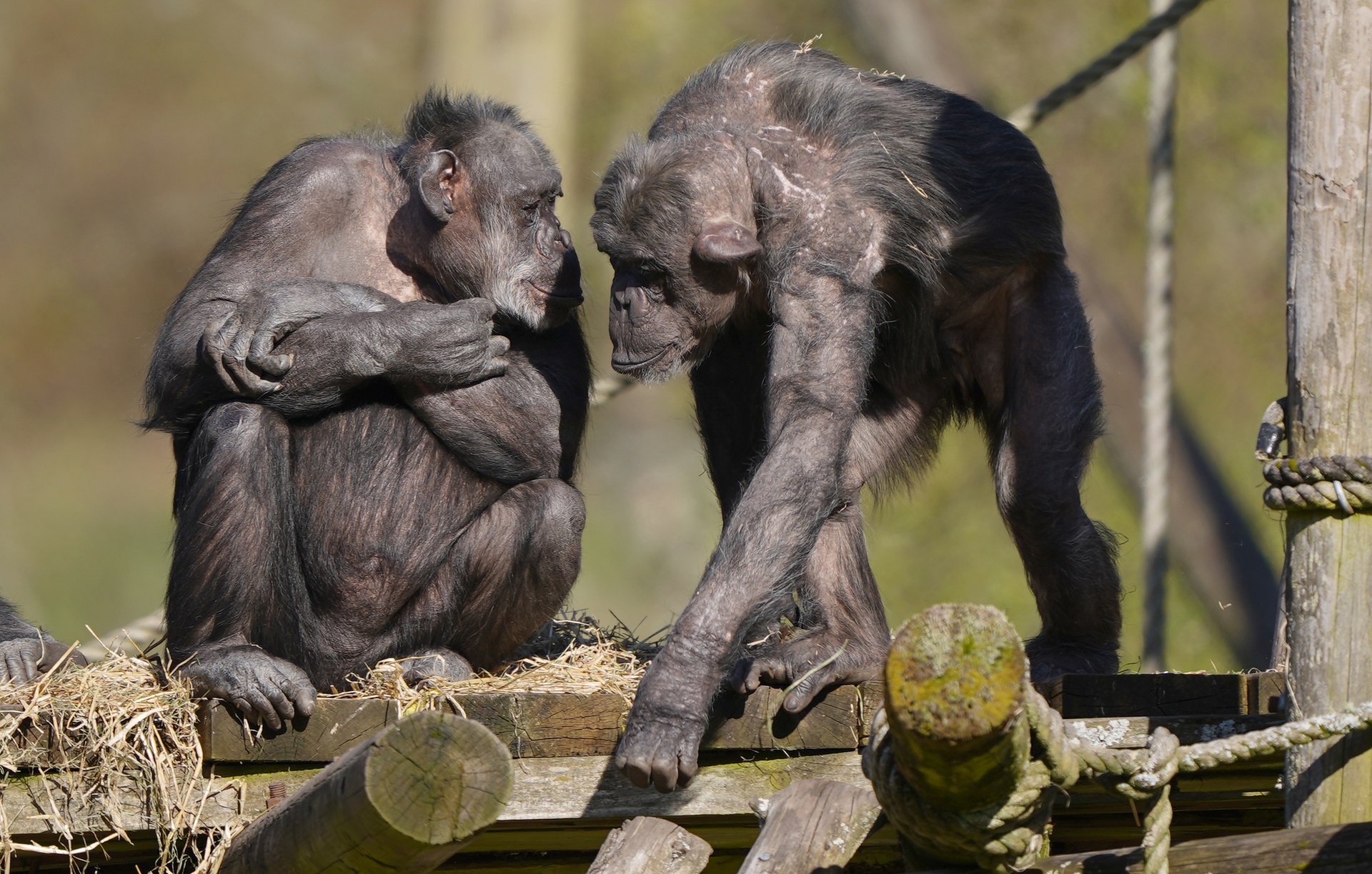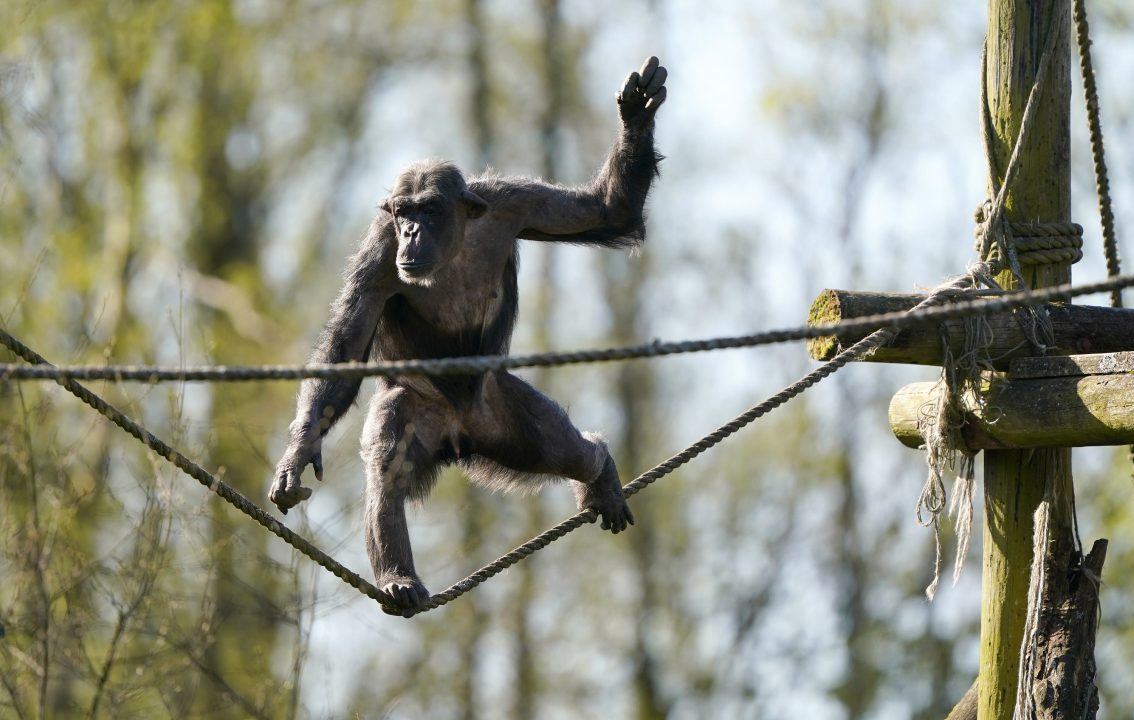A safari park has welcomed a chimpanzee into its resident troop for the first time in eight years.
Visitors to Blair Drummond Safari Park can now see Peter, a 31-year-old male, who arrived in February.
He was transferred to Blair Drummond near Stirling from Twycross Zoo in Leicestershire on February 29.
He had been living alongside another male chimp, Tommy, before the move was recommended by the European Endangered Species Breeding Programme, as it is hoped his relocation will allow Tommy to re-integrate with Twycross’s breeding troop.
For the past few weeks Peter has been settling into his new home and on April 4 he was introduced to Blair Drummond’s resident male, Chippie.
The park said this was carefully planned as introducing chimps can be a complex process requiring patience and strict safety protocols.
 PA Media
PA MediaChimpanzee team leader Alasdair Gillies said: “Introducing Peter and Chippie for the first time was naturally quite nerve-wracking.
“Thankfully, this went very well, and the two boys quickly engaged in playing behaviours. Chippie was born here 37 years ago and had never actually met another male chimp.
“However, he’s always been very playful, and we were hopeful that he would enjoy finally having a male friend to play with. Happily, this appears to be the case.
“Peter has also since been introduced to our female chimp, Gill, and the troop now have unrestricted contact with each other.
“We’re delighted that Peter has integrated so well and are certain he will enhance the dynamics of our troop.”
Mr Gillies described Peter as “really thoughtful and clever”.
He added: “He’s always watching everything around him and is quite talkative too. He’s not shy about telling us exactly what he wants. He’s a brilliant climber and a star in his daily training sessions.
“We’ve had to earn his trust but now he knows us better, he’s full of character.”
The safari park said all species of chimp are now considered to be endangered in the wild, due to a range of threats including habitat loss, disease and the illegal wildlife trade.
They are also still widely poached for their meat and at risk from warfare across the regions in which they live.
Follow STV News on WhatsApp
Scan the QR code on your mobile device for all the latest news from around the country


 PA Media
PA Media























